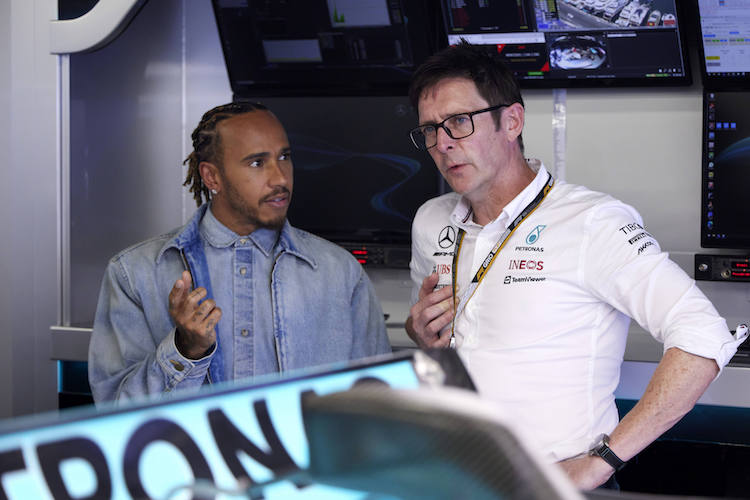Mercedes to Utilize Australian Grand Prix for Experimental Changes to Boost Lewis Hamilton’s Performance

As Formula 1 heads into the Australian Grand Prix weekend, Mercedes is gearing up to employ a series of experiments with its W15 car, aiming to enhance Lewis Hamilton’s competitiveness at the front of the grid.
Hamilton, a seven-time world champion, has faced challenges thus far in the season, notably finishing seventh in Bahrain and ninth in Jeddah, trailing significantly behind race-winner Max Verstappen of Red Bull Racing.

The W15 has exhibited weaknesses, particularly in high-speed corners, and has encountered bouncing issues, especially when carrying low fuel loads. To address these issues, Mercedes’ trackside engineering director, Andrew Shovlin, revealed plans to adopt innovative strategies during the Melbourne Grand Prix weekend.
Shovlin emphasized the team’s comprehensive approach, analyzing data not only from Jeddah but also from previous races and tests in Bahrain. Collaborative efforts across aerodynamics and vehicle dynamics departments aim to formulate experiments geared toward performance improvement.

“There’s definitely data that we’re picking through from Jeddah. We’re also looking at data from the Bahrain race, Bahrain test, and we will come up with a plan for how we approach free practice in Melbourne.”
“But it’s not just based on what we did in Jeddah.”

Team principal Toto Wolff has acknowledged the complexity of the car’s struggles in high-speed corners, attributing the issue to more than just insufficient rear wing downforce. Shovlin echoed this sentiment, suggesting that the challenges stem from a combination of factors rather than a singular fix.
“There’s a lot of work going on within the aerodynamics department, vehicle dynamics department. We’re trying to design some experiments there that will hopefully give us a direction that’s good for performance.”

Among these factors, Shovlin highlighted issues with car balance, particularly in demanding corners where drivers require high confidence. Addressing these concerns is crucial for Hamilton to regain his competitive edge and challenge for podium positions in the upcoming races.
“It’s a few things. One of them was the balance wasn’t great. So those very fast corners, the walls aren’t particularly far away – the ones where the driver wants a lot of confidence – and quite often we were snapping to oversteer if they really leant on the tyres.”







